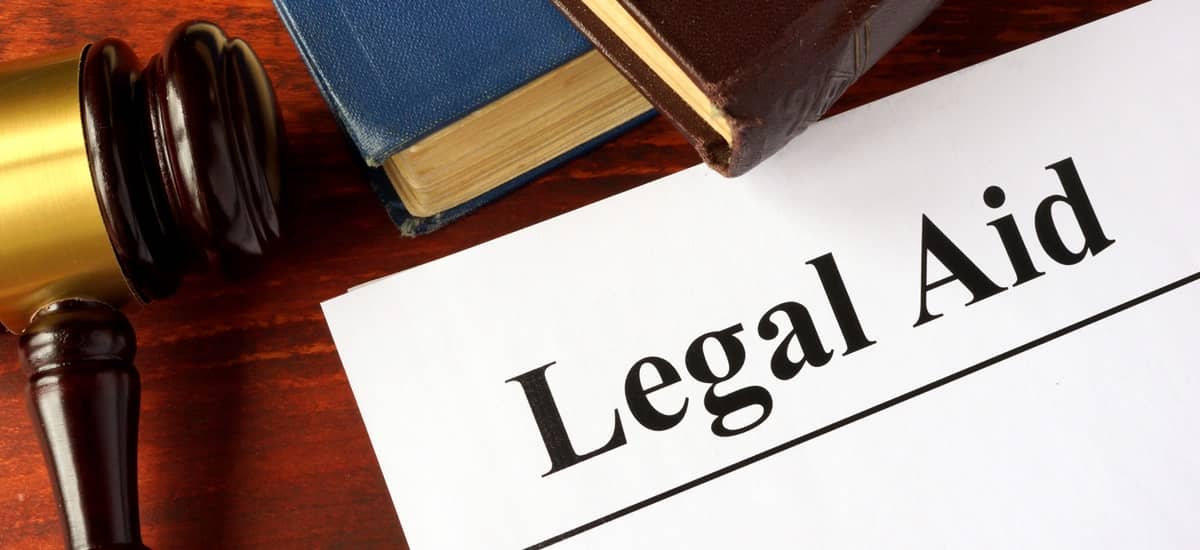Legal aid in New Zealand is granted through a government-funded program that offers financial help to those who can’t afford legal representation or advice in specific legal cases. Legal aid can be provided by our law firm in New Zealand, which is approved and contracted by the Legal Services Agency (LSA).
Who can get legal aid in New Zealand?
Legal aid in New Zealand is available to individuals who meet certain eligibility requirements, including financial and legal criteria. To be eligible for legal aid, you typically need to meet the following considerations:
- Financial eligibility: Your income, assets, and financial circumstances are assessed to determine whether you qualify for legal aid. Legal Aid Services Agency will consider factors such as: your income, the value of your assets (house, car, etc.), the number of financially dependent children you have, and your partner’s finances if applicable. If you meet the financial eligibility criteria, you may be eligible for legal aid in NZ.
- Legal Criteria: Legal aid is generally available for specific types of legal matters, including criminal cases where the potential punishment includes a prison term of six months or more, family law cases, and certain civil cases.
To determine if you qualify for financial assistance through legal aid in New Zealand you can either receive help from WINZ (Work and Income, an organisation within the Ministry of Social Development) or have an income lower than certain amounts based on your family size:
- If you’re single, your income limit is $27,393;
- If you have one dependent, the limit is $43,380;
- With two dependents, it’s $62,381;
- For three dependents, the limit is $70,888;
- For four dependents, the limit is $79,214;
- For five dependents, the limit is $88,552;
- If you have more than five dependents, your income limit goes up by $8,192 for each additional dependent.
Note these thresholds might change over time. If you believe you may be eligible for legal aid, you can discuss with our lawyers in New Zealand about your situation.
Criminal legal aid in NZ
To obtain legal aid in New Zealand for criminal cases, you must be charged with a criminal offense that carries a potential prison term of 6 months or more. Legal aid is primarily available for more serious criminal cases. It might also be available if you are appealing your conviction or sentence for one of these serious offenses.
In some cases, legal aid may be available for minor charges if you have been diagnosed with mental illnesses or learning disabilities. Our attorneys in New Zealand handle such situations as well.
Legal Aid Services Agency will determine your financial eligibility to see if you can obtain criminal legal aid. More details on this subject can be found in the Legal Services Act 2011.
We offer free legal advice in NZ for criminal cases.
Family and civil legal aid
Legal aid in New Zealand is also available for family and civil disputes. Civil disputes covered by legal aid in NZ include: recovering unpaid debts, breach of contracts, defamation, or bankruptcy. Civil legal aid is not available for certain types of cases, such as immigration issues, except for refugee matters, or disputes with schools or companies.
Some family disputes include: child custody, protection orders, children protection, adoption, and paternity cases. Legal aid can be available for disputes related to the division of assets and property when a relationship ends. However, please note it does not cover applications for divorce.
Eligibility for civil and family legal aid depends on factors such as: any previous legal aid debt, your income, assets, and the merits of the legal case.
Our New Zealand law firm can provide further details about legal aid.
Legal aid for disputes dealt with by specialist tribunals and courts
Legal aid in NZ can be available for some exceptional disputes dealt with by specialist tribunals and courts. Some exceptional cases include:
- disputes related to employment matters;
- cases involving discrimination, harassment, and other human rights violations;
- matters related to legal aid eligibility and disputes arising from legal aid decisions;
- cases disputed at the Māori Land Court and Waitangi Tribunal, concerning Māori land ownership, governance, and Treaty of Waitangi claims;
- disputes between consumers and motor vehicle traders;
- disputes between landlords and tenants;
- cases related to environmental and resource management issues.
Our lawyers in New Zealand offer free legal advice in NZ in these particular cases as well.
Legal aid availability for individuals
Legal aid is generally provided to individuals rather than businesses or groups. However, there are exceptions for certain applications before the Waitangi Tribunal, which deals with historical Treaty of Waitangi claims. We also offer free legal advice in NZ in this case.
Individuals under the age of 16 can still access family or civil legal aid. However, they may need an adult (someone 20 or over) to apply on their behalf. For individuals aged 16 to 19, legal aid services may take into account their parents’ assets if they are still living with them or being supported by them.
Legal aid in NZ is available not only to New Zealand citizens and permanent residents, but also to non-residents. This includes individuals with types of visas allowing them to stay in New Zealand temporarily. However, eligibility for legal aid in such cases is subject to means-testing – the income and assets of the individual applying for legal aid will be evaluated.
Our attorneys in New Zealand can determine if you are qualified for legal aid and help you with your case.
How is legal aid granted?
The decision to be granted legal aid in NZ is based on whether you can afford a lawyer, based on the financial criteria, and the specific nature of your case. Our New Zealand lawyers will explain how legal aid is granted.
The Legal Aid Services will consider several factors. Firstly, you must have “reasonable grounds” to qualify for legal aid, meaning that you are personally affected by the case. Some examples are the cases involving children, family/domestic violence, or if you are seeking legal assistance for issues related to mental health.
Also, the Legal Aid Services will evaluate the chances of winning the case. This assessment involves considering various factors, such as the strength of the evidence, legal arguments, and potential outcomes. Generally, the Legal Aid Services pay special attention to cases where the primary objective is to obtain monetary compensation. Our legal aid lawyers in NZ will assist you in evaluating the chances of winning your case. Note that these assessments are not a determining factor for legal aid eligibility for most cases in the Family Court.
Lastly, the Legal Aid Services may refuse your application if they believe the cost of your case outweighs the potential benefits, especially if the other party has limited resources. If you need help with gathering and organizing financial documents relevant to the case, we can recommend our partner accountants in New Zealand. Legal aid might be declined also in case you have alternative dispute resolution options available, such as mediation or complaint processes.
Our law firm in New Zealand will guide you in obtaining legal aid.
Statistics about legal aid in New Zealand
You can find more details about legal aid in New Zealand, based on these statistics. This information is about legal aid grants in New Zealand, from June 2022 to June 2023:
- Legal aid supported 54,530 criminal cases;
- 18,702 legal aid grants were for family disputes;
- 1,352 grants were available for civil disputes.
For further details and assistance on legal aid or free legal advice in New Zealand, please contact our New Zealand lawyers. If you need tax-related services, we can get you in touch with our accountants in New Zealand.

